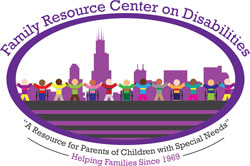What is Developmental Delay?
What’s a developmental delay?
The term “developmental delay” is an important one in early intervention. Broadly speaking, it means that a child is delayed in some area of development. There are five areas in which development may be affected:
- Cognitive development
- Physical development, including vision and hearing
- Communication development
- Social or emotional development
- Adaptive development
Developmental milestones
Think of all the baby skills that can fall under any one of those developmental areas! Babies and toddlers have a lot of new skills to learn, so it’s always of concern when a child’s development seems slow or more difficult than would normally be expected. Our developmental milestones page outlines some of the typical skills that babies and toddlers learn by certain ages. It’s a good resource to consult if you’re concerned that a child may have a developmental delay.
Definition of “developmental delay”
Part C of IDEA broadly defines the term “developmental delay.” But the exact meaning of the term varies from state to state, because each state defines the term for itself, including:
- describing the evaluation and assessment procedures that will be used to measure a child’s development in each of the five developmental areas; and
- specifying the level of delay in functioning (or other comparable criteria) that constitutes a developmental delay in each of the five developmental areas.
What’s your state’s definition?
Clearly, it’s important to know how your state defines “developmental delay.” Find out more about that definition by visiting the Early Childhood Technical Assistance Center, otherwise known as the ECTA Center, at:
https://illinoisearlylearning.org/weblink/early-childhood-technical-assistance-center-ecta/
Read more about developmental delay
We also offer a fact sheet on developmental delay that you may find helpful in understanding the developing child, what to do if you’re concerned about your own child’s development, and where to turn for more information.
Information taken from the Center of Parent Information and Resources Updated, March 2014 A legacy resource from NICHCY
